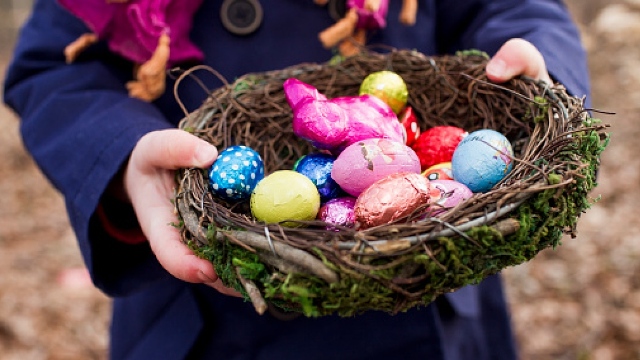Spring has finally arrived, which means that Easter is fast-approaching.
As we all salivate with excitement at the prospect of chocolate eggs and bunnies galore, it’s interesting to consider why Christians celebrate Easter and where all the traditions surrounding the festive period originate from.
With that in mind, here’s everything you need to know about Easter from the bank holidays to mark in your calendar to the history of the Easter bunny.
When is it?
This year, Easter will start with Good Friday on March 30 and end with Easter Monday on April 2.
Easter Sunday is on April 1, coinciding with one of the most jovial days of the year, April Fool’s Day.
Easter can occur on a different date every year as it’s a “moveable feast”, unlike Christmas, which is a “fixed feast”.
The date of Easter is determined each year by consulting with the lunisolar calendar, meaning that it corresponds to the phase of the moon.
This is similar to the Hebrew calendar, which is also influenced by the movement of the moon.
In Tasmania, Easter Tuesday is also an observable public holiday for some workers, as determined by certain awards or agreements and the State Public Service, as stated by the Tasmanian government.
In 2000, a proposal was put forward for schools in the UK to adopt a five-term school year, which would have seen Easter Tuesday become an official part of the Easter weekend.
What is the meaning behind it?
In Christianity, Easter marks the occasion of Jesus’ resurrection following his death on the crucifix at the hands of the Romans.
The New Testament describes how Jesus was resurrected on the third day of his burial.
Good Friday commemorates the day Jesus died on the cross, while Easter Sunday marks the day he was resurrected.
Easter Monday is a bank holiday which occurs the day after Easter Sunday and is celebrated everywhere but Scotland throughout the UK.
The beginning of Easter also marks the end of Lent, the 40-day period starting with Ash Wednesday in which many Christians give something up from their daily lives.
Lent will end this year on March 29.
Eggs are commonly perceived as being symbolic of rebirth, which is why it makes sense that they’re widely associated with Easter.
While centuries ago Christians would dye chicken eggs red to symbolise the blood of Jesus, in modern times many people opt instead for chocolate or plastic eggs filled with sweets.
The folklore of the Easter Bunny was spread in 1700 by German immigrants arriving in America, according to history.com.
The exact origins of the Easter egg hunt remain unsolved.
However, Professor Lizette Larson-Miller explained to CBS News that German church reformer Martin Luther would host Easter egg hunts in which the men hid eggs for the women and children to find.
How is it celebrated?
For Christians, Good Friday is viewed as a solemn day of mourning.
Many churches hold processions or open air services in public places to draw attention to the day of Jesus’ death.
Churches may also hold meditative services and temporarily remove decorations such as flowers or statues.
Easter Sunday marks the day of Jesus' resurrection, which is why Christians celebrate with music and lots of vibrant colour.
Numerous people look forward to taking part in Easter egg hunts during the festive period.
There are hundreds of egg hunts taking place all over the country where children and adults alike can join in the fun and try to uncover as much chocolate as they possibly can.
As a predominantly Christian country, the UK is treated to bank holidays on Good Friday and Easter Monday




.png)
.jpg)

